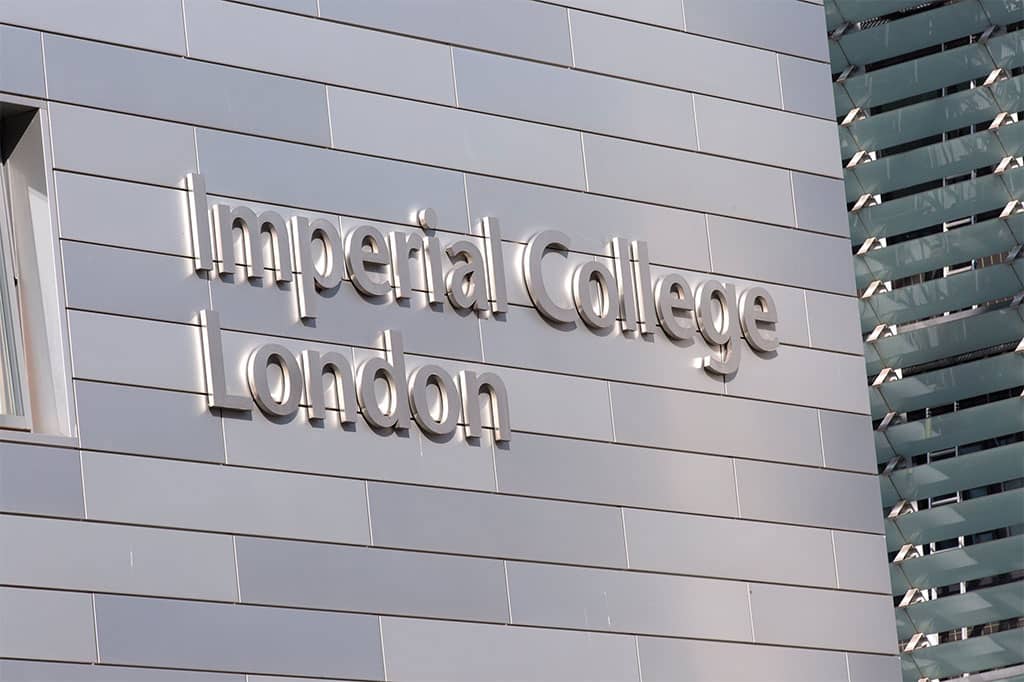Top Medical Colleges In London, 2019

First of all, let us understand why London is a great place to study medicine. London’s universities are rated among the best in the world. Thus, you will be highly sought after graduate.
Path-breaking medical discoveries like that of DNA and penicillin took place in the capital’s medical schools. In London, you will come across some of the brightest and best lecturers and clinicians to learn from. An astounding 40,000 doctors, researchers, and medical professionals are trained in London every year. As millions of patients seek treatment for various medical conditions in London’s hospitals yearly, you will get into clinical contact quite early in your career. This is a big plus for students to develop into top-class professionals.
Also, the University of London organizes an annual competition in the British capital, the London Gold Medal Viva. Very few newly graduated students get the chance to be part of this invite-only competition. You could say it is the University of London’s own prestigious accolade only the worthy few can earn. Though easier said than done, having this award as a standout feather in your cap will surely set you apart from the crowd.
With students from a large number of nationalities studying in London, you can create a global network of friends. You can always leverage this to take your career to the next level.
So now we move onto the list of the best medical colleges you should consider studying medicine at in London.
- UCL Medical School at the University College London (UCL): University College London is ranked 10th globally by the 2019 CEOWORLD magazine University Ranking, as well as 4th in Europe. Within the subject rankings, University College London is ranked 8th globally in the medicine and health science category, 12th in life sciences, and 30th in physical science. UCL is internationally regarded highly for quality research and teaching and is among the world’s best multidisciplinary universities. More than 32,000 have annually enrolled in various programs in this college. 29 Nobel laureates are among their list of their noteworthy alumni. Since the awards were established in 1901, UCL has had at least one Nobel laureate every decade.
- Imperial College School of Medicine (ICSM): Imperial College London is ranked 13th globally by the 2019 CEOWORLD magazine University Ranking, as well as 5th in Europe. Within the subject rankings, Faculty of Medicine at Imperial College London is ranked 4th globally in the medicine and health science category, 15th in life sciences, 11th in physical science. It has an incredible 1,500 researchers and academic staff, and approximately 3,500 students across undergraduate and postgraduate degrees. This makes it one of Europe’s largest medical institutions.Imperial College has been affiliated with the famed St. Mary’s Hospital since 1988. Dr. Alexander Fleming discovered the penicillin at the St. Mary’s.
- King’s College London GKT School of Medical Education: King’s College London GKT School of Medical Education is ranked 30th globally by the 2019 CEOWORLD magazine University Ranking, as well as 7th in Europe. Within the subject rankings, King’s College London is ranked 17th globally in the medicine and health science category and 36th in life sciences. From around 150 countries, King’s college has about 25,000 students, around 10,500 of which are graduate students. It is associated with the discovery of the characteristic shape of the DNA. James Watson, Francis Crick, and Maurice Wilkins famously discovered the double helix shape of the DNA. They had based their work on one of their colleagues at King’s College, Rosalind Franklin.
- Barts and The London School of Medicine and Dentistry at Queen Mary University of London: Highly ranked among the multidisciplinary institutions in the United Kingdom, Queen Mary is one of the top universities in the UK. Thanks to its excellence in research and teaching, Queen Mary University of London is a member of the Russell Group of leading universities in the United Kingdom. The Group brings in the brightest students on the globe. Graduates from this group of universities are regarded highly by employers. Thus, graduates from this college have an advantage when applying for jobs.
- St George’s, University of London: Having its origins in 1733, St. George’s is the oldest medical school in England. It is the second institution in England to offer formal training courses for doctors – second only to the world-renowned Oxford University. In addition to 350+ academic faculty staff, more than 3,000 students are enrolled at St. George’s. More than 400 of these students are international students. Striving to bring about a ground-breaking approach in the industry, their focus on health and medicine make this university special. In addition to being in constant contact with masterful clinicians and scientists, they also have a deep focus on research.
Have you read?
# Fascinating Breakfast Destinations around the World.
# Top 5 Self Help Books To Read During Graduation.
# The Mastermind Group of the Future: What Will Change by Leo Bottary.
# Woke. It’s the Real Thing: An Optimistic Outlook on Authentic Diversity in Advertising by Dominic (Heintz) Friend.
# How avoiding speaking opportunities could hurt your leadership career by Shane Michael Hatton.
Bring the best of the CEOWORLD magazine's global journalism to audiences in the United States and around the world. - Add CEOWORLD magazine to your Google News feed.
Follow CEOWORLD magazine headlines on: Google News, LinkedIn, Twitter, and Facebook.
Copyright 2025 The CEOWORLD magazine. All rights reserved. This material (and any extract from it) must not be copied, redistributed or placed on any website, without CEOWORLD magazine' prior written consent. For media queries, please contact: info@ceoworld.biz








